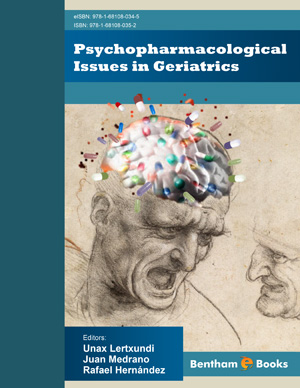Abstract
Demographic evolution will extensively increase the number of subjects aged 65 years and beyond in the upcoming years. This demographic trend becomes a relevant challenge for the professionals of health and a growing of medication demand, and also for deeper comprehension on how age affects the effect of drugs and their interactions. Changes in organ functions, homeostatic mechanisms and receptor responsiveness impair drug distribution, metabolism and excretion, and reduce the effectiveness of medicines. Good clinical trial data in this age group are often lacking, under-treatment is common, and increasingly fragility can make drug administration difficult. As a consequence, medication management is much more challenging in the elderly than in younger adult patients. It is well known that the pathophysiologic changes that occur in the transition from middle age to old age alter responsiveness to drugs, including psychotropic drugs. These Pharmacodynamic changes are especially important in the central nervous system (CNS), where an increasing of the sensitivity of the CNS to drug side-effects with age is observed. This chapter reviews extensively the age-related pharmacokinetic/pharmacodynamic changes in psychopharmacological drugs.
Keywords: Age, Antidemential agents, Antidepresssants, Antiepiletics, Antiparkinsonians, Antipsychotics, Anxiolytics, Clearance, Drug absorption, Drug distribution, Drug excretion, Drug metabolism, Frailty, Geriatric, Mood stabilizers, Pharmacodynamic, Pharmacokinetic, Psychotropics, Psycopharmacology, Volume of distribution.






















